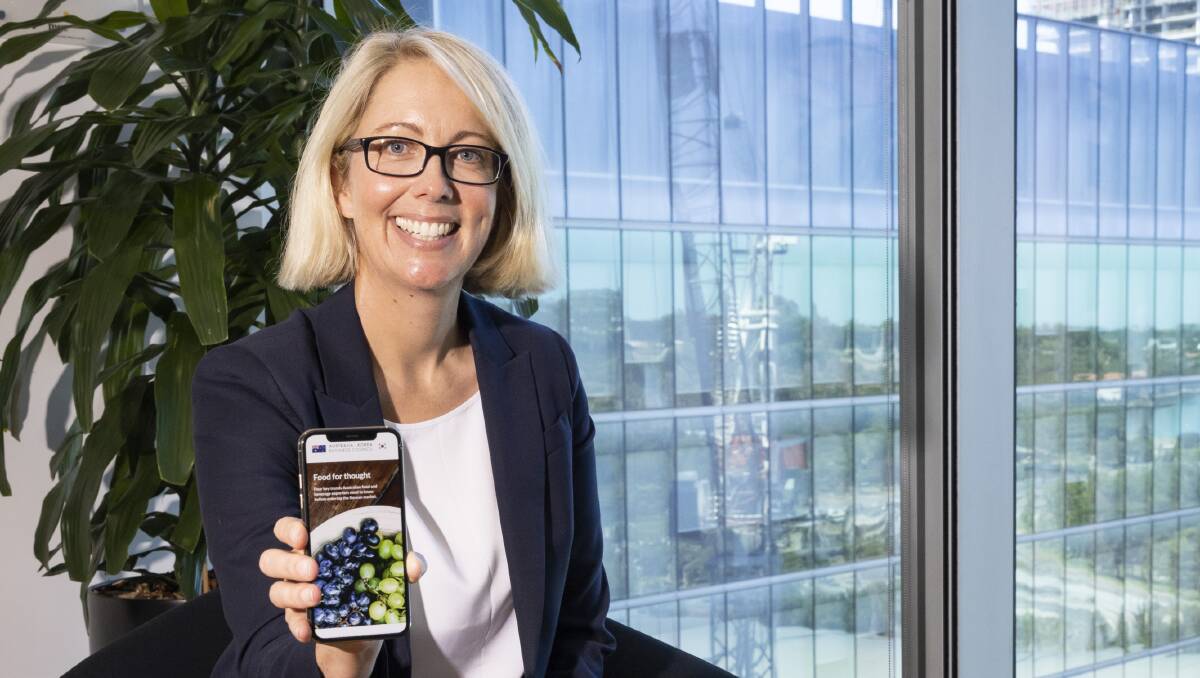
WHEN it comes to exporting trade to Korea, beef may be the biggest opportunity that springs to mind.
But according to a report just released by the Australian Korean Business Council (AKBC), there may be more opportunities in the Korean market, if you know your audience and do your research.
“Our board has identified six priority areas of where we see the most potential in the bilateral relationship, critical minerals is one of those, food and beverage is another,” said Australia-Korea Business Council executive director Liz Griffin.
“The report aims to prepare the next generation of Australian exporters so they can take full advantage of the enormous opportunity in the Korean market.
“Exporters need to ensure they do their research carefully and seek to understand the wants and desires of their Korean customers.
“Premium gift packaging, product reviews, e-commerce, distribution channels, social media and home shopping – all these aspects are very vital and will impact success in the market.”
Federal Trade, Tourism and Investment Minister Dan Tehan said the Koreans valued the fresh, premium products available in Australia and already trusted its reputation as having high quality.
“This latest report is another valuable tool for food and beverage exporters hungry for local market insights, trends and analysis,” Mr Tehan said,
“Highlighting relevant timely information that food and beverage exporters should know before entering the Korean market.”
According to the report, ‘Food for thought: Four key trends Australian food and beverage exporters need to know before entering the Korean market’, last month $500,000 was awarded to the Australian Food and Wine Collaboration Group, comprising of Dairy Australia, Meat & Livestock Australia (MLA), Horticulture Innovation, Wine Australia and Seafood Industry Australia.
The funding is to help the collaboration group promote premium Australian food and wine in South Korea but also several other South East Asian markets.
Korea is Australia’s fourth largest trading partner with zero tariffs on products such as wheat, almonds and wine.
The arrangement has been in place since 2014 thanks to the Korea-Australia Free Trade Agreement (KAFTA) which see these and many more products eligible to enter duty free or with preferential access.
The report outlined that in 2021 a new round of tariff cuts came into effect.
Beef tariffs fell from 21.3 per cent to 18.6pc with their beef safeguard increasing to 174,087 tonnes and lamb tariffs falling from 6.7pc to 4.5pc.
Korea is becoming Australia’s second largest export market and, according to MLA, that was 21pc of all Australian beef exports in November 2021.
One company which has experienced the success of beef exports is the Australian Agricultural Company.
Running 340,000 cattle in Queensland and the Northern Territory, over it’s time exporting, it has grown from an initial supply of less than 100t in 2003 to supplying more than 3000t per annum.
While tariffs are low and demand is high, the opportunity to capitalise on other products is huge, as long as new exporters understand the Korean market.
Knowing the customer and the way consumers shop was a point expressed repeatedly through the report, as this research is imperative to success in the Korean market.
According to AKBC, MLA has done this well through its promotion of Australian beef.
The report shared that its marketing strategy was “grassfed” and its investment into a wide range of consumer awareness, trade and promotional campaigns and activities under the ‘True Aussie Beef and Lamb’ (Hoju Chungjung Woo) branding, had contributed to its success.
It is also now mandatory for Korean retailers to share the country of origin for meat products.
As traceability becomes more important globally, not just in Korea, this is a trend exporters can tap into as part of their marketing strategy.
BASP Trading is another company which has developed strong relationships with Korea and understands the demographic.
Originally exporting poultry offal and by-products, it now also exports pork and beef offal to Korea and plans to supply organic cheese and milk products in the future.
Sourcing pork from Linley Valley Pork in WA, it has a large customer base in Korea.
“Australia’s great reputation as a safe, green producer gives an added advantage over our competition,” said BASP owner Buddhika Ariyagama.
“I would like to see, however, some support from trade bodies and organisations in the poultry and pork sector to help promote Australian poultry and pork offal’s and other by-products in South Korea.
“The Australian beef and lamb industry has always been represented and promoted well in the South Korean market as opposed to poultry and pork products, hence some timely action is needed for the poultry and pork product sector now.”
According to Mr Ariyagama, poultry still has huge potential, as well as organic flour and dairy products.
Along with beef, wine has seen significant growth in Korea, with wine exports rising to $45.5 million over 12 months to September 2021, up 81.5pc from last year, and an online retailer was selling a single Australian mango for $23.
As a country with little room for agriculture due to more than 70pc of the landscape being mountainous, there is still huge potential for this Korean market, for growers, producers and exporters across the agricultural sector.
Want weekly news highlights delivered to your inbox? Sign up to the Farm Weekly newsletter.








